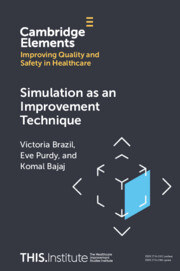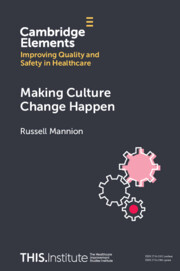Healthcare generates vast quantities of ‘routinely collected’ data that is recognised as a valuable substrate to drive improvement. Realising this benefit however, requires the sequential distillation of new knowledge before analytical findings are used to inform real-world change. This dichotomy requires the combination of techniques from data science (to derive meaningful knowledge) and improvement (to deliver change). Recognising this transdisciplinary need and the complexity of modern healthcare, we developed an improvement project to incorporate a ‘systems approach’ into the analysis of pseudonymised perioperative data for the purpose of redesigning the systems that deliver surgical care to older patients. This required the development of novel mixed-methods workflows combining tools used to realise a systems approach in practice and to support meaningful analysis, and to translate these findings towards ‘better’ care systems. This paper recounts the incorporation of these tools into ‘dataintensive improvement’ and reflects on the relevance of design thinking to improve the conduct of the necessary data science to achieve our ultimate aim, using data to improve services for older surgical patients.



